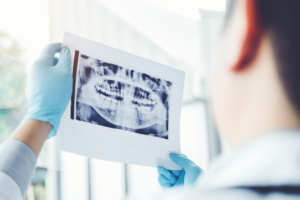Never Ignore These Four Dental Emergencies: Insights from an Emergency Dentist in Chicago, Illinois

There are certain dental problems that require the immediate attention of an emergency dentist in Chicago, Illinois to avoid further complications with your oral health. In some cases, it can result in lasting damage if the issue is not treated on time.
Below, we’re going to discuss four of the most common dental emergencies and explain how they should be handled.
What exactly is a dental emergency?
A dental emergency is an unexpected occurrence of intense pain, discomfort, or trauma to the mouth. For example, a minor chipped tooth is not an emergency, but a dislodged tooth is — as the latter poses a greater risk to your dental and oral health. Teeth or gum injuries can be severe, and in most cases, you should schedule an appointment with an emergency dentist in Chicago, Illinois as quickly as possible.
Dental emergencies commonly include — but are not limited to — the following:
- Gum bleeding that does not improve after seven to ten days
- Dental abscess with accompanying swelling
- Severe toothache
Broken or Knocked-Out Tooth
Whether it happens at a sporting event or while relaxing at home, it is almost always unexpected. Both breaking and knocking out a tooth require emergency dental care. When you find that your tooth is cracked or has fallen out, the first thing you should do is call an emergency dentist in Chicago, Illinois. Any reputable dental office should be able to adjust their schedule to accommodate you as quickly as possible. Until you can see us, you can follow these instructions:
For broken teeth:
- Save any broken tooth pieces and rinse them (along with your mouth) with salt water.
- Apply pressure to the area with a piece of cold, wet gauze for roughly ten minutes or until the bleeding stops.
- To minimize swelling, apply a cold compress or ice pack to the outside of the mouth, cheek, or lip around the fractured tooth.
For knocked-out teeth:
- Quickly retrieve the tooth and pick it up by the crown (the part usually exposed in the mouth).
- If the tooth root is dirty, rinse it off with water but do not scrub or remove any attached tissue fragments.
- Try to get the tooth back in place. If you cannot do so, keep it in your mouth while driving to your dentist or put it in a glass of milk.
- Arrive at your emergency dentist in Chicago, Illinois within an hour of the tooth falling out (if possible) to ensure the best possible chance of saving it.
Severe Toothache
A toothache’s throbbing, persistent pain should never be ignored — especially if it interferes with your ability to eat or sleep comfortably. Toothache is sometimes a warning sign of an underlying problem and should be taken seriously.
It’s recommended that you visit an emergency dentist in Chicago, Illinois immediately if you are experiencing a prolonged or severe toothache. They will be able to identify and resolve the underlying cause of your toothache, providing you with the relief you need. You can try these remedies in the meantime:
- A saltwater mouth rinse
- Dislodging any stuck food particles/debris with floss
- Over-the-counter non-steroidal anti-inflammatory drugs (NSAIDs) like acetaminophen (Tylenol) or ibuprofen (Advil)
- Applying a cold compress or ice pack on the outside of your cheek to keep swelling down
Dental Abscess
Dental abscesses are bacterial infections that occur around the root, causing damage to the tissue and surrounding teeth. Additionally, they can develop in diastema (space between teeth and gums). If left untreated, the bacterial infection can spread to other body parts, posing a serious health risk.
Our Chicago dentists may recommend root canal treatment to treat the dental abscess and save your tooth. However, if the tooth is irreparable, it may be removed.
Bleeding Gums
Because healthy gums do not bleed when you brush or floss, you may have periodontitis if your gums are bleeding. However, if you have recently sustained a gum injury, the risk of developing periodontitis is not as high.
Here are some things you can do if your gums are bleeding excessively:
- Rinse your mouth with salt water.
- Apply pressure to the area with a piece of cold, wet gauze for roughly 10 minutes or until the bleeding stops.
- To minimize swelling, apply a cold compress or ice pack to the outside of the mouth, cheek, or lip around the fractured tooth.
- If bleeding does not stop, visit a periodontist in Chicago, Illinois.
Looking for the Premier Emergency Dentist in Chicago, Illinois?
Are you experiencing significant discomfort with your teeth or mouth? If so, and if you’re looking for the premier emergency dentist in Chicago, Illinois, Smile Innovations is here to help. We can provide you with the right treatment to restore your smile. Contact our office at (773) 763-1000 to schedule an emergency appointment.

